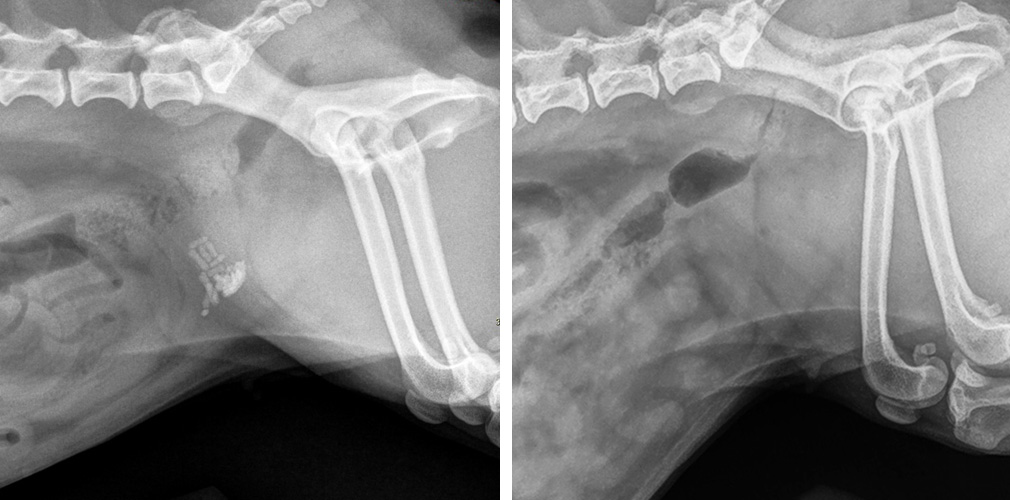Hedgehogs are nocturnal, athletic, and solitary
Hedgehogs have gained popularity as pets in recent decades. Before you add one to your family, Dr. Krista Keller, a veterinarian at the University of Illinois Veterinary Teaching Hospital in Urbana, recommends learning all you can about these animals’ unique needs.
While the wild European hedgehog freely roams the gardens of the United Kingdom and elsewhere, the species that is raised for the pet trade is the African pygmy hedgehog, Atelerix albiventris, according to Dr. Keller, who is board certified by the American College of Zoological Medicine.
Hedgehog Diet and Housing Needs
In the wild, hedgehogs eat a wide variety of bugs, plants, and roots. That diet can be challenging to recreate in captivity. “The best hedgehog diet would be a specially formulated hedgehog or insectivore diet, of which there are many commercially available preparations,” says Dr. Keller. “This diet can be supplemented with treats such as mealworms, crickets, and fruits and vegetables.”
![[radiograph of hedgehog]](https://vetmed.illinois.edu/wp-content/uploads/2021/04/pc-hedgehog-xray.jpg)
They may be roly-poly, but hedgehogs are actually quite athletic creatures! In the wild they often run several miles a night and are adept climbers and swimmers. To meet their exercise needs, pet hedgehogs need an enclosure large enough to accommodate an exercise wheel and space for natural foraging behavior.
The enclosure also needs smooth sides (so the hedgehog isn’t able to climb out) and a hiding spot for sleeping. A 2-foot by 3-foot enclosure is considered a minimum size. Large Tupperware storage containers can be a great option for an enclosure.
It is also imperative to include an external heat source (an undertank heater or heat bulb) in the enclosure with multiple thermometers to monitor the efficacy. Hedgehogs come from a tropical part of the world and do best in a temperature of 75-85 degrees Fahrenheit. Cooler or hotter temperatures can make a hedgehog enter a state called torpor.
Hedgehog Activity
Hedgehogs are nocturnal. They sleep during the day and are very active at night. “They will be getting up for their ‘day’ when you are having dinner, which can be a nice time to interact with them before you go to bed,” Dr. Keller says.
Keep in mind that their nighttime activity, including running on a wheel, may mean you will not want their enclosure in your bedroom. Exercise wheels are noisy! (Dr. Keller also says that exercise wheels should never have a wire bottom, because this design leads to fractured limbs.)
“Unfortunately, many captive hedgehogs are overweight, so exercise opportunities are very important,” says Dr. Keller. “Allow your hedgehog time outside of the enclosure to explore or swim while supervised a few hours each week.”
Hedgehog Interaction
Hedgehogs are very solitary animals and should be housed separately. In the wild, they are only social during the breeding season.
Their solitary nature can make it difficult for these pets to warm up to you. Dr. Keller says with time and patience, you can learn to work with your pet and earn their trust.
“The best opportunity to be able to train a hedgie to accept handling is by obtaining the animal from a breeder at a young age, although there are exceptions to this rule,” says Dr. Keller.
![[Dr. Krista Keller examines a hedgehog]](https://vetmed.illinois.edu/wp-content/uploads/2021/04/pc-keller-hedge-exam.jpg)
When you first get your hedgehog, you should allow time for your pet to settle into her new enclosure. Give her a few “hands off” days. Once she is more settled in, start doing some handling at night when she is awake. Handling should be focused on getting the animal used to the scents of the hands. Be careful: hedgehogs bite when startled, so going slow and socializing the animal gradually is very important.
Hedgehog Health Care
Just like any other pet, hedgehogs should see a veterinarian every year to identify any potential health issues early.
“Veterinary examinations are a crucial part of hedgehog health. After obtaining a hedgehog, bring him to a veterinarian to be examined for internal parasites and external parasites, such as mites,” advises Dr. Keller.
You should be aware that hedgehogs may acquire a variety of cancerous and cardiac conditions. With annual veterinary visits and early detection, a hedgehog can still have a good quality and length of life. Dr. Keller also recommends that all female hedgehogs be spayed. Female hedgehogs are prone to uterine tumors, which can be fatal. A preventative spay can altogether eliminate this risk.
Dr. Keller says, “With appropriate care and keeping, your hedgehog will live about five years, and some even live longer than eight years.”
If you have any questions about hedgehogs, contact your local veterinarian.
By Hannah Beers




